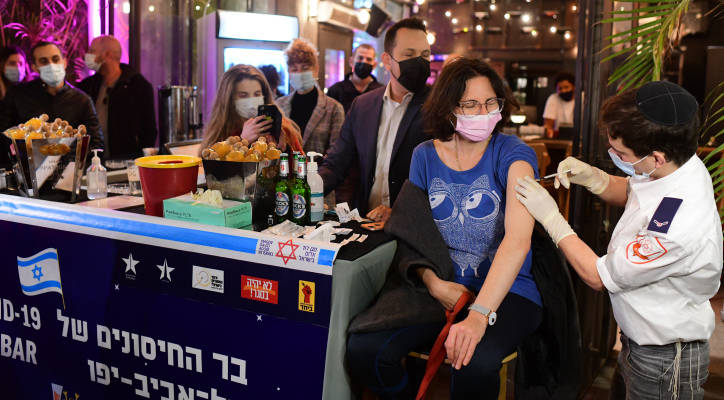According to an Israeli medical study of 9000 people, “the first dose is even more effective than we thought.”
By Yakir Benzion, United With Israel
Israel’s push to become the first country that vaccinates its entire population against the coronavirus is leading to new and encouraging discoveries about the American-made Pfizer vaccine, with a new research report showing that infections were reduced by 75% after only the first of the two-dose inoculation, The Jerusalem Post reported Friday.
Prof. Gili Regev-Yochay, who heads the Infectious Disease Epidemiology Unit at Sheba Medical Center in Tel Hashomer near Tel Aviv, headed a study of 9,000 Sheba workers of whom about 7,000 received their first shot of the Pfizer vaccine in January.
The results were published in the respected Lancet medical journal, reporting a 75% decrease in all infections and an 85% reduction in symptomatic infections between 15-28 days after vaccination, the Post said.
Regev-Yochay said that out of the 9,000, only 170 people became infected during the two-week period following the first shot, and of those who tested positive for the virus, only 99 showed symptoms. In contrast, 89 of the 170 who became sick had not been vaccinated.
“In real life, the data looks at least as good as in the clinical trials,” Regev-Yochay said. “The first dose is even more effective than we thought.”
As of Friday, Health Ministry statistics showed that 4.1 million Israelis had received at least one shot of the Pfizer vaccine, while 2.7 million – mostly those aged 50 and over – had received two doses.
“This is the first study assessing effectiveness of a single vaccine dose in real-life conditions and shows early effectiveness, even before the second dose was administered,” said Prof. Eyal Leshem, who heads Sheba’s department of Travel and Tropical Medicine.
Regev-Yochay said that Sheba is now finishing up research on the impact of the second dose, which health officials say is essential for giving maximum protection. However, she noted that the Sheba test group was for hospital workers who are mostly under the age of 65 and healthy, “so it is possible that fewer people got sick or showed symptoms for that reason,” the report said.
While several of Israel’s health-maintenance organizations have also published similar findings, the Sheba report is the first study published in a peer-reviewed medical journal.
Regev-Yochay told the Post that additional studies are being worked on, including one that could potentially indicate whether a person who contracts coronavirus after vaccination is contagious.
She said that there may be “good news on that soon.”
